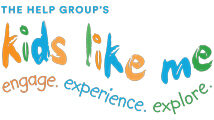
As a parent of a child across the autism spectrum or with other special needs, you understand that navigating big emotions can sometimes be a challenge. Whether it’s anxiety, frustration, or excitement, helping your child cope with their feelings is essential for their well-being. In this blog, we’ll explore some practical strategies to support neurodivergent children’s needs in managing their emotions effectively.
1. Identify Emotions
The first step in managing big emotions is recognizing and naming them. Help your child understand what they’re feeling by labeling emotions like anger, sadness, or anxiety. This simple act can provide clarity and pave the way for effective coping strategies.
2. Understand Your Child’s Triggers
Every child is unique, and understanding your child’s triggers is the first step in helping them cope with big emotions. Pay attention to situations or events that seem to provoke strong emotional responses in your child and try to identify patterns. By understanding what triggers your child’s emotions, you can better anticipate and prepare for challenging situations.
3. Create a Safe and Calm Environment
Creating a safe and calm environment at home is essential for helping your neurodivergent child regulate their emotions. Provide a quiet space where your child can retreat when they’re feeling overwhelmed, and make sure they have access to comforting objects or activities that help them feel secure. Establishing consistent routines and clear expectations can also help your child feel more secure and in control.
4. Encourage Communication
Talking about feelings is a powerful tool for emotional regulation. Create a safe space for your child to express themselves without judgment. Whether it’s with you, a friend, or a therapist, encourage open dialogue to ease the burden of big emotions.
5. Embrace Creativity
Expressing emotions doesn’t always require words. Encourage your child to channel their feelings into creative outlets like drawing, writing, or dancing. These activities offer a therapeutic release and empower your child to explore their emotions in a healthy way.
6. Practice Relaxation Techniques
Teaching your special needs child mindfulness and relaxation techniques can help them stay grounded when they’re feeling overwhelmed. Deep breathing exercises, progressive muscle relaxation, and visualization techniques are all effective strategies for reducing stress and anxiety. Practice these techniques with your child regularly, so they become familiar and comfortable using them when needed.
7. Take Breaks
Sometimes, a pause is all we need to reset and recharge. Teach your child the importance of taking breaks when emotions become overwhelming. Whether it’s a short walk, listening to music, or engaging in a favorite hobby, encourage activities that promote relaxation and rejuvenation.
8. Seek Professional Support
Finally, don’t hesitate to seek professional support if you’re struggling to help your autistic child cope with their emotions. A qualified therapist or counselor who specializes in working with neurodivergent children can provide valuable guidance and support for both you and your child. The Help Group’s Lumina Counseling offers therapeutic support for all ages. To learn more, contact [email protected].
Helping your special needs child cope with big emotions may require patience, understanding, and creativity, but with the right strategies and support, you can empower your child to navigate their emotions effectively and thrive. Remember to prioritize self-care for yourself as well, as supporting a neurodivergent child can be emotionally demanding.
As Mental Health Awareness Month unfolds in May, it remains crucial to maintain the normalization of discussions surrounding mental health challenges in children of all ages. At Kids Like Me, we take pride in offering enriching camps and events designed to empower neurodivergent youth, helping them thrive and achieve their full potential. Together, let’s strive to create a world where every individual is celebrated for who they are.
For more information about our summer camp programs for children and teens, please contact [email protected].
